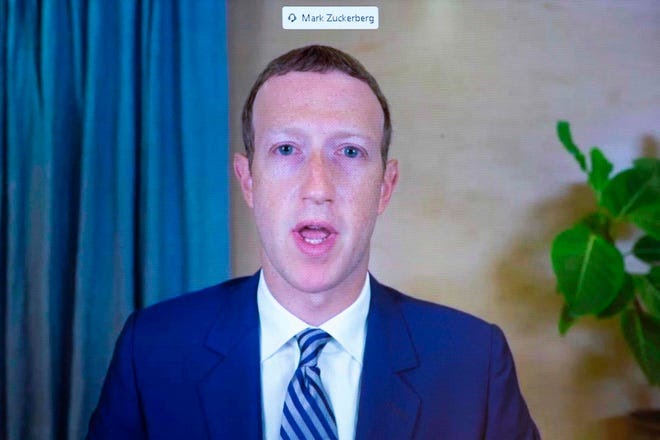From an Ethical Standpoint: Data Privacy & Its Exploitation
Posted by admin on December 24, 2020

Image: MissionLocal.org
Notable Supreme Court judge from the early 20th century Louis Brandeis, claimed in his 1890 dated article on Harvard Law Review ; that people should enjoy their “right to privacy”, which he argued was the “right to be let alone.”
After more than a century, the privacy of individuals in the digital age is important more than ever, bringing the questions of how to protect the data, where the boundary ends & how to control the collection and use of the personal information by others.
According to the Congressional Research Service’s article; California Consumer Privacy Act (CCPA), it provided consumers with three main “rights”. First, consumers have a “right to know” if businesses have collected and sold their data, requiring businesses to inform consumers about the personal data being collected. Secondly, consumers with a “right to opt out” of the sale of their personal information. Third, the CCPA gives consumers the right, in certain cases, to request that a business delete any information collected about the consumer.
Are these rights really respected today by powers that be? And how can we stand together against it?
Is it really working?
Even though these sanctions went into full effect, we’re usually just skipping or clicking OK when the banner pops up, without really comprehending the aftermath of our actions. With all the online personal data shared with or without consent, and cookies tracking our every click, online surveillance became a part of Today’s internet, especially in the current atmosphere where manipulative online communication poses a big threat for basic human privacy rights.

Cambridge Analytica unlawfully harvested personal information from more than 50 million Facebook profiles. Getty Images
As one can imagine, tech giants are far from reluctant to abuse and violate these basic rights. According to the Journal of Information Policy article, former Facebook chief security officer Alex Stamos stated that the advertising components of social media have the most capability for abuse generally. This translates as the digital advertisement system can easily be weaponized in the wrong hands. And that’s what is happening today. Cambridge Analytica’s involvement in 2016 US elections, with stolen data from Facebook, targeting Trump voters, raised the awareness on data privacy rights and it is just one incident.
Privacy has always been a major debate. Especially since the Watergate Scandal in 1972. Post-Watergate reforms sought to restore the faith in the system, promoting ethics and transparency. Later in this century, GDPR (General Data Protection Regulation) implemented in 2018, aimed to give control to individuals over their personal data, and is described by academic experts that charted the regulation as ‘the most consequential regulatory development in information policy in a generation.’ Even though the regulations are widely accepted, with the promise of creating a transparent and fair system for all; it didn’t scare Big Tech off, they went on manipulating massive audiences and even a US election through their means, using little gaps on the system, while asserting their power through censorship.
Recently Facebook’s Mark Zuckerberg and Twitter’s Jack Dorsey testified before the Senate Judiciary committee for their alleged bias on conservative accounts and their inability to handle hate speech and misinformation. During the hearing, Republican Senator Joshua Hawley said his office had been contacted by a Facebook whistle-blower and told of an internal tool called Centra. He claimed that Centra was used to track people’s use of the wider internet as well as to monitor them logging into different Facebook accounts even if registered with different names. Subsequently Zuckerberg denied it.

Mark Zuckerbeg, testifying before the Senate Judiciary Committee. USA Today
Who is to blame?
With the general implementation of GDPR (General Data Protection Regulation) & CCPA (California Consumer Privacy Act) in the past years, data breaches were easily detected, and as a result it led to a big increase in the reporting of privacy violation incidents. According to Kroll’s 2018 report, 2,000 breaches detected in 2018 are attributed to human error, compared to just 292 that were deliberate cyber attacks. According to one survey, 29 percent of IT decision-makers believe that the CEO should have the primary responsibility if a large-scale data breach does occur. In addition, 62 percent of IT decision-makers believe that the CEO or the company’s board should be most aware of organizational policies to respond to data breaches.
Is an Ethical Data Strategy Possible?
According to Science Direct’s article, one point of view is that data-intensive environments are enabling us to capture information and knowledge about the physical surroundings, to optimise our resources, enjoy personalised services and gain unprecedented insights into our lives. But with cloud computing technology costs lowered, companies are now provided with an immense amount of data that might be confiscated by cyber attacks in malevolent hands which threatens the very existence of people’s basic right to privacy.

Blockchain is the culmination of decades of research and breakthroughs in cryptography and security, and it offers a totally different approach to storing information and performing functions. Tech Crunch
Complying with GDPR and other regulations is essential, having a sound data strategy and keeping a business’ data privacy capabilities up to the task, while using the right tools and technology, play a major role. One of the possible solutions is incorporating blockchain technology into your data strategy, as blockchain is public and all information is accessible, complying with the principle of lawfulness, fairness and transparency, as long as the data controller documents its use of the blockchain, the principle of accountability should be able to fulfilled.
Through my years in the Blockchain industry, I personally came to the conclusion that by establishing a transparent data strategy based on blockchain, businesses could protect the data against a possible manipulation. Additionally, these core transparency values also should be implemented in the development process of the blockchain to be in total compliance with today’s privacy laws, to create real transparency and a more democratised internet space.
– Raghav Reggie Jerath
